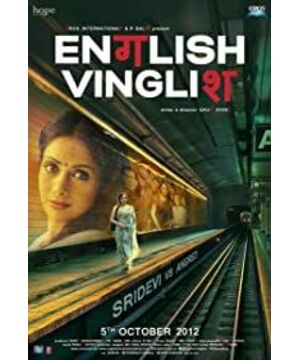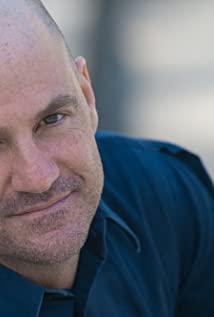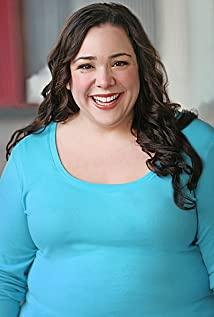Shahi, a traditional Indian housewife, was laughed at by her family because she did not speak English at home, and was excluded from the topic. Mispronounced jazz dance names, embarrassing parent-teacher meetings for her daughter, subjects that she cannot tutor... These all made her gradually feel inferior, and English became a barrier between her and her family. The film deliberately expresses the current predicament of traditional housewives, conveys the idea that women should love themselves, and at the same time permeates cultural introspection in the context of cultural integration. In order to attend her sister's wedding, she came alone to a country as diverse as the United States. The unpleasantness of ordering food at the cafe caused her long-buried emotions to explode. But there was a man standing behind him who didn't dare to make a sound, and didn't dare to return the cup of coffee that fell when there were only two of them. Because they are similar, both have broken English and lack confidence. In a crash English class in New York City, she met people of different nationalities, occupations, and personalities. The character creation in the film is also particularly good, creating a lot of wonderful and impressive characters. For example, the helpful and humorous old man on the plane, the black man who does not like to talk but just listens, etc. Shahi's proud craft is called "entrepreneur" in the eyes of English classmates, but at home is only called "snack maker". It was the classmates and the people who helped her who gave her more confidence, courage and respect. She also understands that women must love and respect themselves first, and husbands and wives in marriage should try to help each other, support each other, and respect each other. In the end, the children and husband were surprised by Shahi's English, and also realized the importance of respect among family members. But this is only temporary, and it is regrettable in the ending that Shahi finally returns to the family, "to be the mother of the child", and to return to ethics.
View more about English Vinglish reviews











